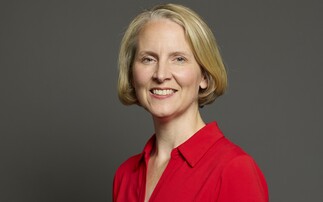Three in five women felt stressed at work during lockdown, compared with 45% of men, a survey of UK adults has found.
A survey of just over 2,000 UK working adults from Aviva has shown that the Covid-19 lockdown implemented in March has adversely impacted the wellbeing of women more so than men.
The research found that 59% of women reported higher levels of stress during the lockdown period, compared with 45% of men, while 46% of women said the quality of sleep on a weekly basis was poor during this time, compared to 36% of men who said the same.
Nearly half (47%) of those polled who were on furlough rated the quality of their sleep on a weekly basis as ‘bad' while four in 10 (38%) who were employed full-time experienced this.
Exercise
More women than men said they have struggled to eat healthily during lockdown (45% compared to 32%) and a quarter of women said their exercise levels had decreased since lockdown - a third of men said the same.
While a quarter (25%) of men have undertaken running during the lockdown, just under one in six (15%) women said they had done so.
Housework and care
According to Dr Subashini M, associate medical director of UK health and protection and Aviva, data suggests that women have been more likely to take on the greater share of housework and childcare while balancing full-time work or job insecurity, and this could be having a greater impact on their wellbeing.
A recent survey by Aviva also found that more females than males (38% vs. 29%) feel as if they have less money to spare at the end of the month than they did before the lockdown, which suggests another key stressor.
Dr M said: "I would like to see employers review how supportive they are of their staff for flexible working and working around their caring responsibilities.
"Undertaking a review of home working adjustments, by splitting workplace/employee data into different categories such as gender might reveal areas where employers can help. How employers monitor and help wellbeing is vital for an organisation to succeed in a post-Covid-19 world.
"All of us should spend some time reflecting on the habits we have developed during lockdown as many of us are struggling to cope with the social disconnection, financial strain, increased obligations in the home and prolonged period of uncertainty.
"These small changes, if left uncorrected, can have a profound impact on our health in the long run as well as negatively impacting our outcomes should we be unfortunate enough to be unwell with Covid-19 in the shorter term."














